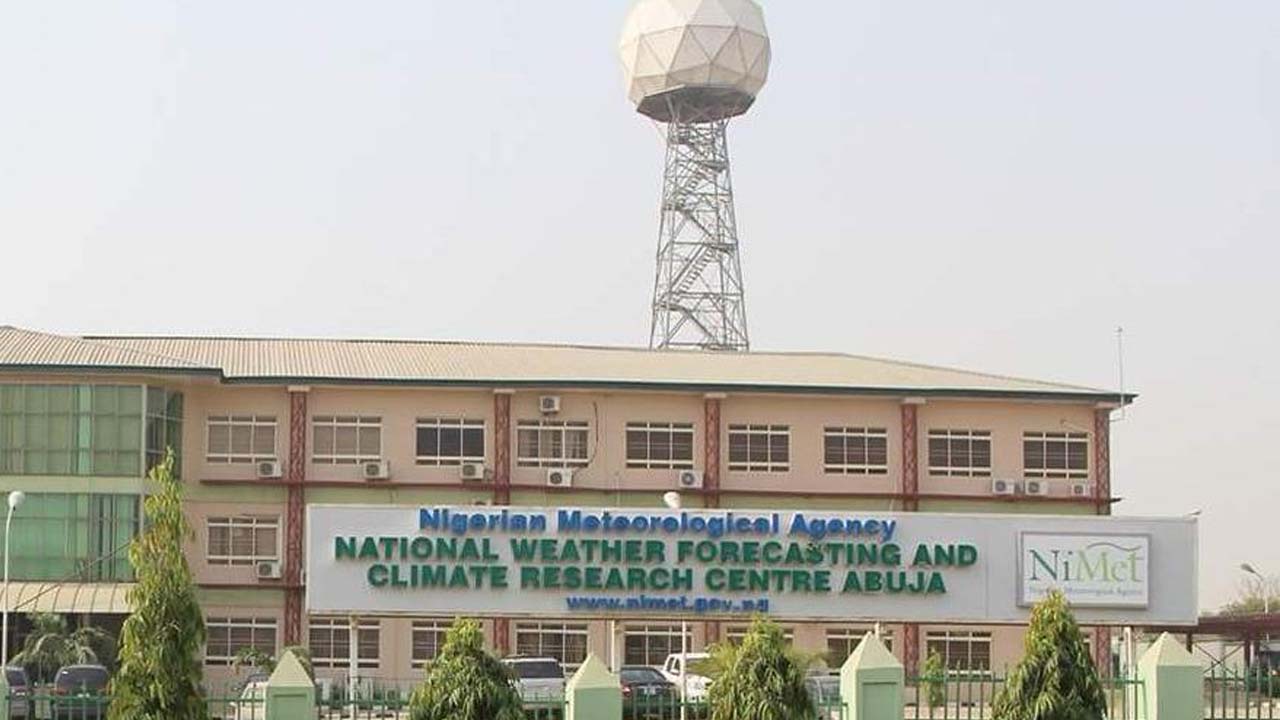News
NiMet calls for proactive disaster measures

The Nigerian Meteorological Agency (NiMet) has called for proactive measures to ensure that every citizen, regardless of location, language, or socioeconomic status, receives timely and accurate warnings.
Prof. Charles Anosike, Director-General/Chief Executive Officer of NiMet, made the call on Monday in Abuja, at the opening of a three-day Expert Workshop on Early Warning For All, National Disaster Risk Reduction (DRR) Strategic and Action Plan 2023-2030.
Anosike was represented by Prof. Vincent Weli, Director of Weather Forecasting Services, at the workshop organised by the National Emergency Management Agency (NEMA).
“Disasters, whether natural or man-made, can strike at any moment, leaving devastating impacts on communities and livelihoods. Early warning systems are the first line of defence against disasters.
“They provide critical seconds, minutes, or hours for people to seek safety, evacuate, or take necessary precautions.
“However, an early warning is only effective if it reaches all those at risk. In Nigeria, we face various hazards, from floods to landslides, droughts, and conflicts.
“The impact of these disasters can be catastrophic, but we can mitigate them through proactive and inclusive approaches.
“That’s why we must prioritise early warning for all. We need to ensure that every citizen, regardless of location, language, or socioeconomic status, receives timely and accurate warnings,” he said.
Anosike said that to achieve this, Nigeria must invest in robust early warning systems that leveraged technology and community networks and strengthen emergency response capabilities.
He stressed the need to conduct regulatory and public awareness campaigns, foster collaboration between government agencies, NGOs, and local communities, and support disaster risk reduction education in schools and communities.
He listed some critical roles played by the agency in early warning for all initiatives in Nigeria, including provision of accurate and timely weather forecasts, warnings, and advancements to help predict and prepare for extreme weather events.
Others, he said include data dissemination, training stakeholders on early warning systems and weather forecasting, climate monitoring, as well as conducting research to improve weather forecasting and early warning systems.
“In public education, we educate the public on weather-related hazards and promote awareness on early warning systems.
“We also collaborate with partners and other agencies, NGOs, and stakeholders to ensure a coordinated approach to early warning systems,” he said.
Anosike called on all stakeholders working on disaster management to work together for better results in disaster mitigation and prevention.
“By working together, we can build a culture of resilience and reduce the risk of disasters in Nigeria.
“Let us commit to protecting our people, our communities, and our nation,” he said.
On his part, Umar Mohammed, the Director-General, Nigeria Hydrological Services Agency (NIHSA), stressed the need for the workshop stakeholders to disseminate information from the workshop to stakeholders at the grassroots.
Mohammed, represented by a Director of Engineering Department, Mrs Fashe-Adam Fransisca, said the problem with disaster management in the country was not a lack of data or early warning but failure of people to take to warning.
“NIHSA is doing her job. Other organisations are doing their jobs to warn our people. But we don’t take to warning. We wait until disaster happens, and then everybody runs out of water.
“So with this programme, I hope that we’ll be able to sensitise our people more, especially those at the community level.”
He also stressed the need to teach people how to adapt and build resilience to natural disasters that could not be prevented.




 Davido's Net Worth & Lifestyle
Davido's Net Worth & Lifestyle 
